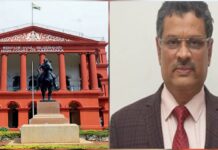In a meeting with one of the topmost Libyan diplomats in Moscow, the Russian Foreign Affairs Minister Sergei Lavrov expressed Russia’s complete support for the withdrawal of foreign military personnel from Libya.
“We confirm Russia’s support for the decisions made by the 5+5 Military Committee, including the decision on the need to withdraw all foreign troops without exception from Libyan territory,” Lavrov said.
The withdrawal was agreed upon during the 5+5 Military Committee meeting in August.
Previously, military officers from rival factions in the North African country’s conflict participated in U.N.-led talks in Geneva aimed at securing a ceasefire after 10 months of fighting on the outskirts of the capital, Tripoli.
The Libyan Joint Military Commission that participated in the talks included five senior officers from eastern commander Khalifa Haftar’s Libyan National Army (LNA) and five officers aligned with the internationally recognized Government of National Accord (GNA).
“We will be prepared to constructively take part in this work alongside other countries,” Lavrov further added while addressing a press conference in his home country.
Libya’s Foreign Affairs Minister Najla al Mangoush spoke about friendly relations between his country and Russia and expressed his interest in deepening ties between Moscow and Tripoli.
The Libyan foreign minister said her government considers the issue of withdrawing foreign fighters “important” and “a priority,” but stressed that it should be done gradually and “in a synchronized manner.”
“We pride ourselves on historically close relationships that are always strengthened and expanded based on mutual benefit,” she added.
Talking about the necessity for having a strategic plan for the gradual withdrawal of military forces instead of a haywire process Mangoush said that “That’s why working out implementation mechanisms is necessary,” and added that “Such decisions are aimed to avoid repeating (the) negative lessons of some of our neighbors, to avoid an ill-considered withdrawal of troops and to avoid sliding into chaos, so that the national security of Libya doesn’t suffer in the end.”
The country has been in utter chaos since a NATO-backed uprising toppled longtime dictator Moammar Gadhafi in 2011 in the name of ending the civil war and bringing “liberation”.
The imperialist war wreaked havoc and split the country between a U.N.-supported government in the capital, Tripoli, and rival authorities loyal to commander Khalifa Hifter in the east. Both the factions are backed by various foreign powers.
Also read: Afghanistan and the Shifts in the Geopolitics



























